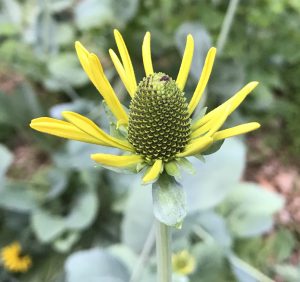 I’m not ok and that is ok. One thing that I have learned from doing seminars on parenting with SAS employees across the globe this year is that none of us, no matter what country we live in or what language we speak, are ok. We have moments when we are making the best of things or maybe even rare times when we feel safe and secure, but those feelings are tenuous and fleeting. Most of the time we are experiencing unprecedented levels of anxiety, fearing for our health and the safety of our loved ones, and pouring all the energy we have into functioning well enough to maintain our jobs and take care of our families.
I’m not ok and that is ok. One thing that I have learned from doing seminars on parenting with SAS employees across the globe this year is that none of us, no matter what country we live in or what language we speak, are ok. We have moments when we are making the best of things or maybe even rare times when we feel safe and secure, but those feelings are tenuous and fleeting. Most of the time we are experiencing unprecedented levels of anxiety, fearing for our health and the safety of our loved ones, and pouring all the energy we have into functioning well enough to maintain our jobs and take care of our families.
I’m not ok and that is ok. At the beginning of the pandemic, I read somewhere that people who live with anxiety disorders might have an advantage because they have been coping with overwhelming levels of anxiety their whole lives. I don’t know if that is true, but I do know that we all have to help each other in whatever way we can. As someone with a lifelong anxiety disorder (and also as a licensed therapist who spent years counseling people with anxiety disorders), I might have some strategies to suggest that you haven’t tried. Here are the things that work the best for me.
- Distraction
Perseveration (repeating a worry over and over in my head and not being able to get out of the mental loop) is a hallmark of my flavor of anxiety. I haven’t found anything that works as well for me as distracting myself, preferably with something funny. If I can break the “perseverative thought loop” then I am able to be more flexible and clearer in my thinking. My favorite way to break the thought loop is by listening to 5-6 min of my favorite late-night comedian on YouTube.
- Exercise
Morning exercise is key for me, yet it is so easy to miss it when I am stressed. In addition to all the other benefits of exercise, it really helps with emotional regulation (being in control of your feelings) throughout the day.
- Talking
I do better when I talk about my feelings. Talking helps me see things clearer and I can release the worries… sometimes because I realize they are bigger in my head than they really are and sometimes telling someone else helps me feel less alone. I talk with friends and family, but at times like this when life is very uncertain and stressful, I talk with a therapist as well. If you want to talk with a therapist too, contact Work/Life and we will help you find someone.
- Social Accountability
When people are depending on me, it is much easier to pull myself together than when they are not. Sometimes I encourage myself to do things that are good for me by adding a social accountability component. Throughout the pandemic I have been teaching dance classes online, even when I didn’t want to get out of bed, because I know that my students are counting on me to get them moving and to help them cope.
- Nature
Before the pandemic, I didn’t take much time to be outside in nature. Now I realize how healing and centering being in nature is for me. Moving water is the most restoring for me… I think it is both about the sound and also the quality of the air around any body of water whether it be the ocean, streams, waterfalls, lakes, or rivers.
I’m not ok and that’s ok. We can stop being so hard on ourselves. We are living through unprecedented times that will change us in ways we can only imagine. It’s time we take a walk, text a friend, hug our kids and just be ok with not really being ok.

2 Comments
Wow. Thank you for that.
💛💛💛